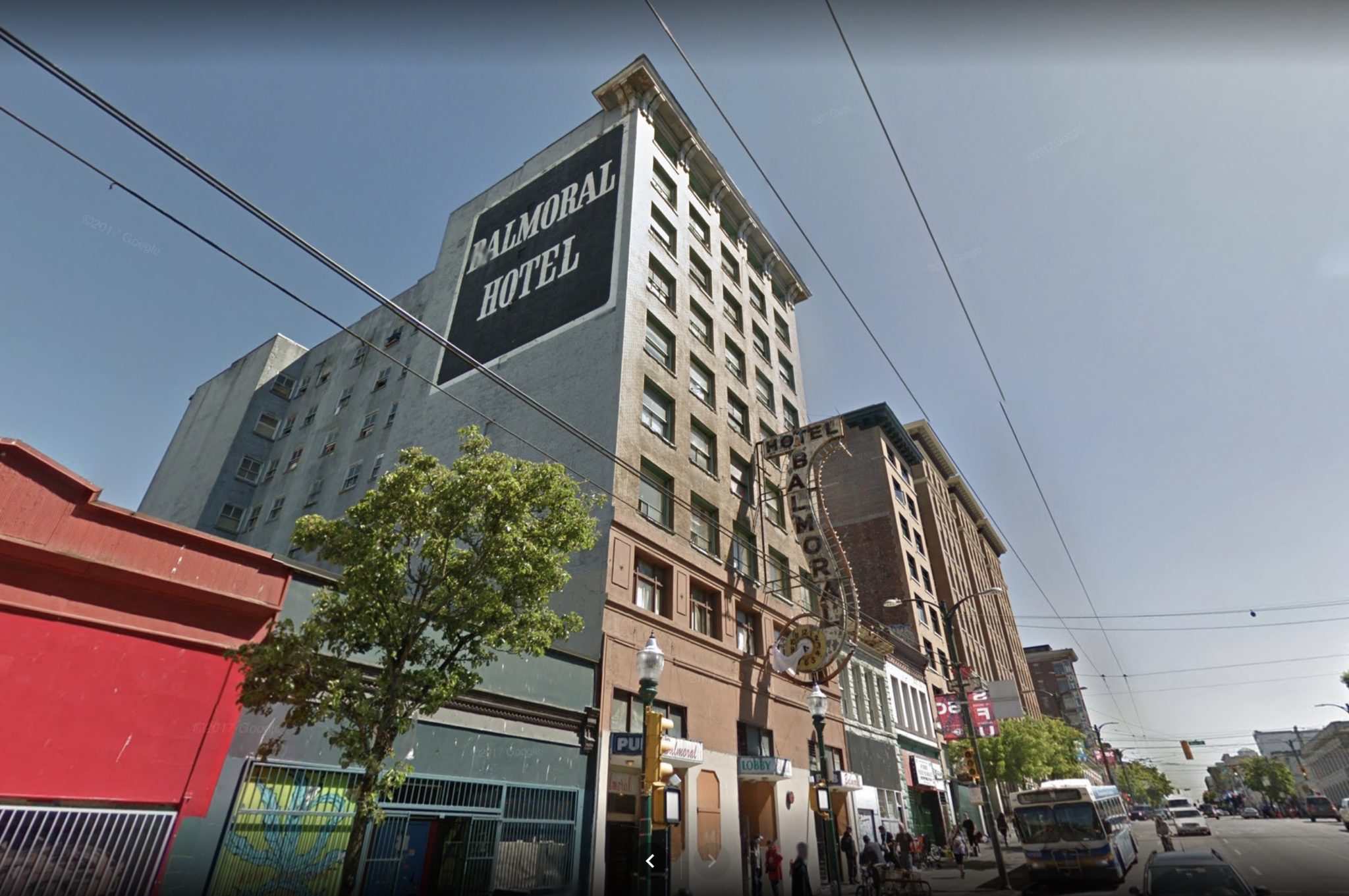Problem SROs no better despite Vision’s promise
“When these landlords realize just how determined we are, then they will comply.”
So said Vision Vancouver councillor Tim Stevenson eight years ago when speaking to CBC News about the city’s running fight with the Sahota family, owners of multiple derelict apartment buildings in the Lower Mainland.
“These people are basically slumlords,” Stevenson told the Province newspaper 18 months earlier in October 2007.
Vision Vancouver used the “slumlords” issue to good effect leading up to their taking power at city hall in the November 2008 election. Dealing with dilapidated and dangerous single-room occupancy (SRO) hotels — largely concentrated in the city’s Downtown Eastside neighbourhood — was a pillar of the Vision campaign platform.
“The City will strengthen and enforce existing property standards bylaws to prevent rental buildings from being closed — even making repairs at the owners’ expense if necessary,” promised Vision’s platform document. “The NPA has protected slum landlords by failing to enforce these basic standards. We can’t be afraid to take action to ensure that affordable rental housing remains safe, clean, and available.”
It has been a decade since Vision amped up its public attacks on the family that owns these problematic properties — specifically Parkash, Gurdyal and Pal Sahota, the individuals with their names on the title documents for these properties.
Yet, here we are this past week on the hamster wheel yet again, with little or nothing having been done to improve the conditions for the downtrodden tenants in the notorious Balmoral Hotel on East Hastings Street. In fact, conditions are arguably much worse than a decade ago.
On June 2nd, 150 tenants in the Balmoral were given 10 days’ notice to vacate due to “imminent danger” caused by poor conditions in the building. The city, with the help of B.C. Housing, has, according to multiple sources, been able to immediately place these tenants within an existing stock of available social housing units and shelter spaces.
When it comes to problematic SROs, it is not as though there have not been valiant attempts by City of Vancouver property inspectors, or its legal department, to get owners like the Sahotas to comply with some basic maintenance requirements.
When the city invariably winds up in court to collect fines, the costs of enforcing health safety regulations becomes absurdly high.
According to a 2016 Vancouver Sun report, the Sahotas’ real estate holdings have an estimated value of over $130 million. Even when a $115,000 fine was imposed in 2012 on the Sahotas by the Residential Tenancy Branch, it would barely make a scratch in the family’s net worth.
That penalty, by the way, was eventually waived on a promise the owners would comply with basic repairs to their property.
The latest recommendations by city staff on what to do about problematic, privately-owned SROs seem painfully inadequate. Currently, 55 per cent of SROs are privately owned and operated.
Now is the time for the city and province to take some bold steps.
With the help of B.C. Housing, the city must enter into long-term lease agreements with the owners of these properties and move reliable non-profit operators in to oversee health safety conditions in these buildings. The longer leases would allow government funders to amortize costs for needed repairs and renovations.
With its high homelessness count, our region cannot afford to lose any housing due to decaying conditions without triggering an even larger crisis. The Balmoral problem alone pushed them to the brink.
For years the city has been loath to dip into its so-called “density bank” as a tool to improve the state of buildings located in its heritage neighbourhoods. The Heritage Building Rehabilitation Program and the Heritage Façade Rehabilitation Program were tools used by previous COPE and NPA councils (the latter using density bonusing) to provide grants and tax incentives for building improvements leading up to the Vancouver 2010 Games.
While it seems counterintuitive to be rewarding property owners of run-down SROs, it is clear that punitive measures have failed to improve the conditions for tenants after years of political promises and costly time in the courts.
We must face the fact that we need the housing, while they own the buildings.
It is time to shift private operators out of these buildings altogether, and install those who are more accountable and compassionate with our most vulnerable citizens.
– Originally published by Vancouver Courier



